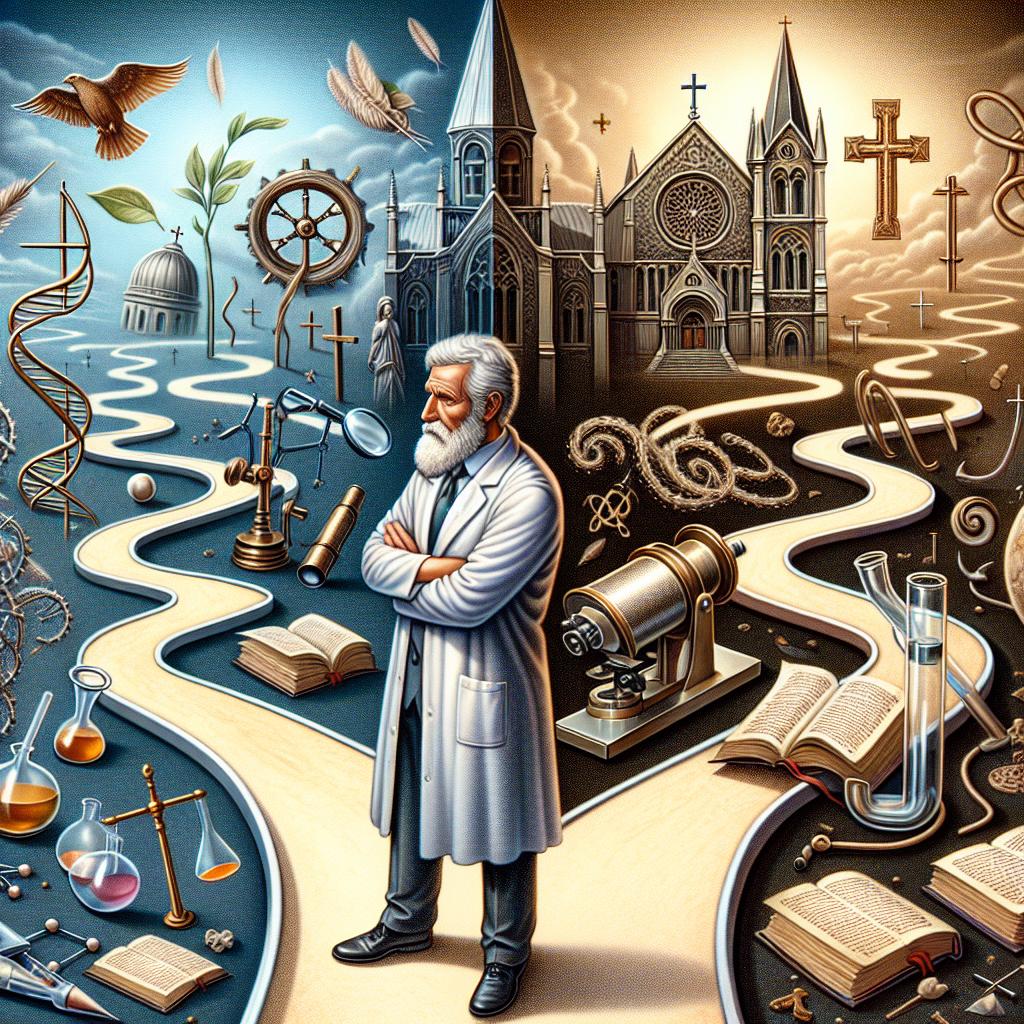
Unveiling the Dangers of Charles Darwin's Slippery Slide to Unbelief: A Christian Perspective
Published: 23 September 2024
Charles Darwin's Slippery Slide into Unbelief
Introduction
Charles Darwin, known for his theory of evolution and natural selection, had a significant impact on the rejection of belief in God and the Christian faith. Despite his religious upbringing and early interest in Christianity, Darwin's exposure to alternative ideas and his own scientific observations led him to doubt the truth of the biblical accounts of creation. This doubt ultimately led to his rejection of both the Old Testament and the New Testament, resulting in a loss of faith and a descent into agnosticism. Understanding Darwin's journey from belief to unbelief is important for Christians today as it highlights the challenges posed by evolutionary theories and the need to hold fast to biblical truths.
1. Early Religious Influences
Darwin's early religious influences included his Anglican baptism and his mother's Unitarian beliefs. He grew up praying and attributing his successes to divine intervention. Although he initially considered becoming an Anglican clergyman, he had doubts about fully accepting the doctrines of the Church of England. However, he found comfort in reading theological works such as "Pearson on the Creed" and Paley's "Evidences of Christianity" and "Natural Theology". These readings strengthened his belief in the Bible as a source of truth and provided him with solace during times of grief.
2. The Influence of Charles Lyell
Darwin's doubts about the Bible began when he started questioning the truth of the first chapters of Genesis. His doubts were greatly influenced by his reading of Charles Lyell's groundbreaking book, "Principles of Geology". Lyell's book challenged the idea of recent creation and denied the worldwide extent of Noah's Flood. This denial, which contradicted divine judgment, aligned with Darwin's developing theory of natural selection. By accepting Lyell's view of an old earth, Darwin found support for his theory that required vast amounts of time for species to evolve through gradual modifications.
3. The Rejection of the Old Testament
As Darwin increasingly embraced the idea of species evolving by chance and natural selection, he found it difficult to accept the Genesis account of creation. His rejection of the supernatural creation described in the Old Testament led him to question the entire book's divine inspiration. In his autobiography, Darwin wrote that he came to see the Old Testament as no more trustworthy than the sacred texts of other religions or the beliefs of barbarians. This gradual rejection of the Old Testament's authority paved the way for his subsequent rejection of Christianity as a divine revelation.
4. The Renunciation of the Gospels
Darwin's rejection of Christianity extended beyond the Old Testament to include the Gospels. He questioned the credibility of miracles, dismissed the Gospel writers as ignorant and credulous, doubted their chronology, and found inconsistencies in their accounts. These doubts led him to disbelieve in Christianity as a divine revelation. He renounced his belief in Jesus Christ as the Son of God and rejected the Bible as a source of divine truth.
5. The Influence of Family
The influence of Darwin's father, Robert, and his grandfather, Erasmus, cannot be overlooked in understanding his slide into unbelief. Both were freethinkers who held skeptical views about religion. Growing up in an environment where disbelief was acceptable likely contributed to Darwin's own rejection of Christianity. Even when he became engaged to Emma Wedgwood, a devout Unitarian, Darwin's father advised him to conceal his religious doubts from his future wife.
6. The Loss of Comfort and Hope
One significant consequence of Darwin's rejection of Christianity was the loss of comfort and hope that he once found in the Bible. When his beloved daughter Annie passed away at a young age, Darwin's grief was compounded by his disbelief in an afterlife or any solace provided by religious beliefs. His letters reflected a sense of hopelessness and a reliance on time to dull the pain of loss. This contrasted sharply with his earlier ability to find consolation in the Bible's teachings.
Why This Matters
Understanding Charles Darwin's journey from belief to unbelief is relevant for Christians today. His rejection of the biblical accounts of creation and the Gospels highlights the challenges posed by evolutionary theories and the need to critically engage with them from a biblical perspective. The slippery slide into unbelief serves as a reminder to Christians to hold fast to their faith and to seek a deeper understanding of God's Word in the face of doubt and skepticism.
Think About It
Consider the importance of maintaining a firm foundation in biblical truth amidst scientific and philosophical challenges. Reflect on how Darwin's gradual rejection of the Bible impacted his worldview and led him further away from faith. How can Christians today respond to similar challenges to their faith?
